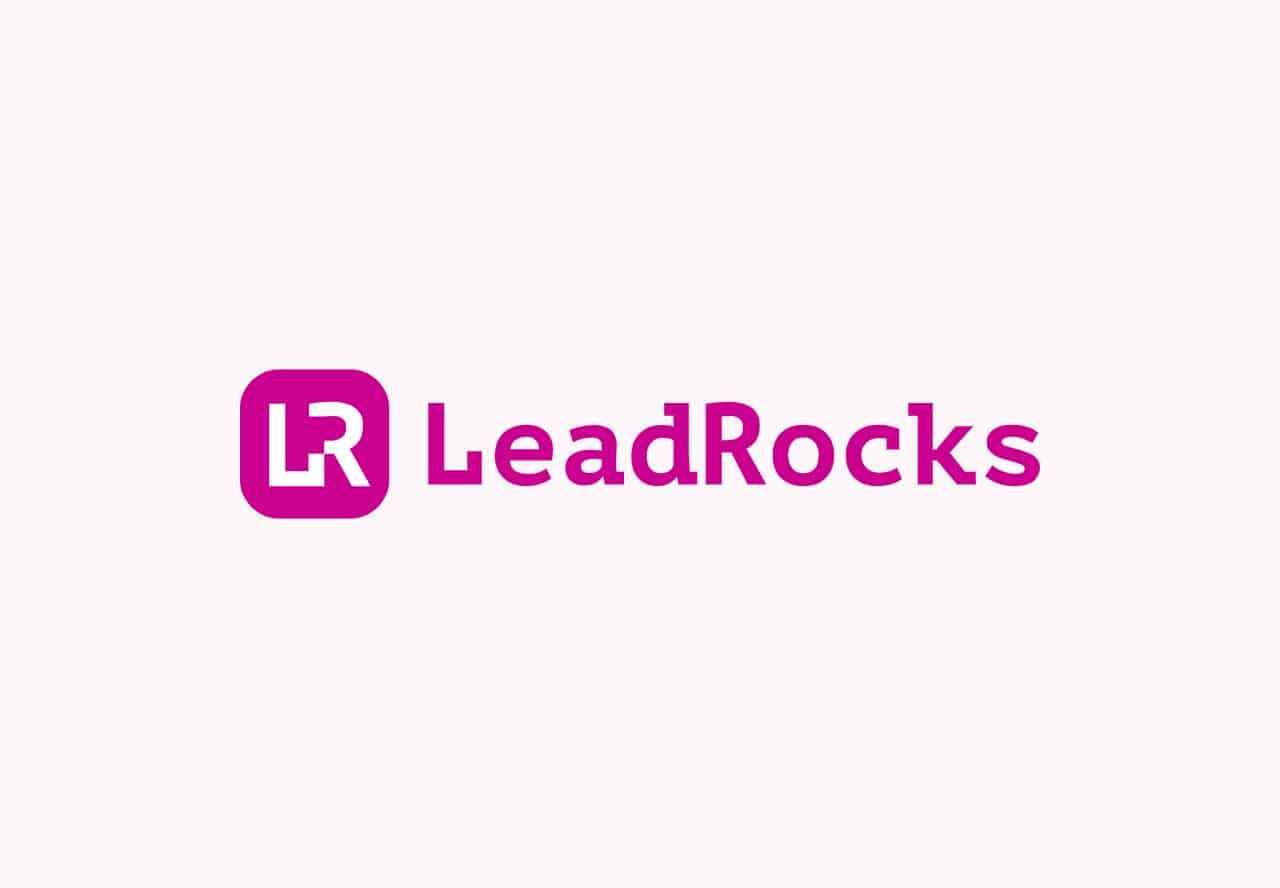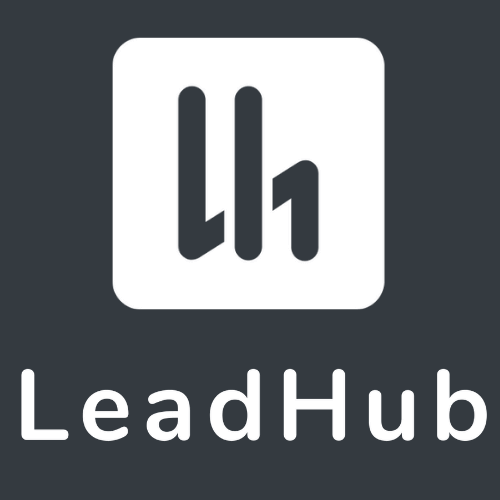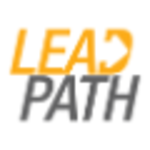Description

EQMS

LeadRocks
Comprehensive Overview: EQMS vs LeadRocks
To provide a comprehensive overview of EQMS and LeadRocks, let's explore their primary functions, target markets, market share, user bases, and key differentiating factors.
a) Primary Functions and Target Markets
EQMS (Enterprise Quality Management Software):
-
Primary Functions:
- EQMS solutions are designed to facilitate quality management processes across an organization. They generally include modules for document control, audit management, corrective and preventive actions (CAPA), risk management, supplier quality management, and compliance management.
- These systems help ensure compliance with industry standards and regulations, improve product quality, reduce risk, and drive continuous improvement processes.
-
Target Markets:
- EQMS is often targeted at industries with stringent quality and compliance requirements, such as pharmaceuticals, manufacturing, automotive, aerospace, healthcare, and food and beverage.
- It is typically adopted by medium to large enterprises that have complex supply chains and require robust quality control measures.
LeadRocks:
-
Primary Functions:
- LeadRocks is a lead generation and prospecting tool designed to help sales and marketing teams find and engage potential customers. It offers features like contact data enrichment, email finding, and integration with CRM systems.
- The tool is typically used to automate the process of finding leads, enriching contact data, and orchestrating outreach campaigns.
-
Target Markets:
- LeadRocks primarily targets sales professionals, marketing teams, and small to medium-sized businesses (SMBs) looking to expand their customer base.
- It is particularly useful for B2B companies aiming to scale their outreach efforts in industries like SaaS, consultancy, and digital marketing.
b) Market Share and User Base
While exact market share figures can be difficult to determine due to the broad range of solutions these tools offer, the following outlines their general standing:
EQMS:
- The EQMS market is quite fragmented with numerous providers offering specialized solutions tailored to different industries. Major players include companies like SAP, IBM, MasterControl, and Sparta Systems.
- EQMS solutions are widely adopted in heavily regulated industries, contributing to a substantial user base among large enterprises with rigorous quality management and compliance needs.
- The competition among EQMS providers is intense, with market share often segmented by the specific requirements of different verticals.
LeadRocks:
- As a lead generation tool, LeadRocks is part of a competitive market that includes numerous similar SaaS products such as ZoomInfo, LinkedIn Sales Navigator, and Hunter.io.
- LeadRocks has been gaining traction particularly among small to mid-sized businesses due to its ease of use and cost-efficiency.
- The market share here is diversified, with larger players dominating significant parts of the market; thus, exact share numbers for tools like LeadRocks can vary considerably.
c) Key Differentiating Factors
EQMS:
- Compliance Focus: A significant differentiator for EQMS solutions is their emphasis on compliance with industry-specific regulations (such as FDA, ISO standards). This focus integrates quality management directly with regulatory requirements.
- Customization & Scalability: Many EQMS solutions offer high levels of customization and scalability, which are crucial for large enterprises with complex operational structures.
- Industry-Specific Features: EQMS products often cater to the unique needs of specific industries, providing tailored modules that address sector-specific challenges.
LeadRocks:
- Simplicity and Flexibility: LeadRocks aims to provide a user-friendly interface with simplified processes for managing lead generation and outreach campaigns, catering especially to SMBs with limited resources.
- Cost-Effectiveness: Compared to larger competitors, LeadRocks may offer a more cost-effective solution, appealing to smaller businesses and startups.
- Data Accuracy: The accuracy and reliability of the contact data provided can be a key differentiator, influencing the effectiveness of outreach campaigns.
In summary, EQMS and LeadRocks cater to different needs of the business landscape, with EQMS focusing on quality management in regulated industries and LeadRocks on facilitating lead generation for sales and marketing efforts. The two solutions have distinct target markets, functionalities, and value propositions that influence their adoption and positioning in their respective markets.
Contact Info

Year founded :
2022
Not Available
Not Available
Mexico
Not Available

Year founded :
Not Available
Not Available
Not Available
Not Available
Not Available
Feature Similarity Breakdown: EQMS, LeadRocks
As of my last update in October 2023, I don’t have specific details about the products EQMS or LeadRocks, as these may not be widely recognized industry-standard tools, or they may have changed after my last update. However, I can provide a general framework for analyzing such software products if they are related to sales, lead management, or similar functionalities.
a) Core Features in Common
If EQMS and LeadRocks are similar in their application area (for instance, CRM, lead management, or sales automation tools), they might share the following core features:
- Contact Management: Maintaining a centralized database of contacts and prospects.
- Lead Scoring and Tracking: Evaluating and tracking leads through various stages of the sales funnel.
- Email Integration: Ability to integrate with email platforms for communication and campaigns.
- Reporting and Analytics: Tools for generating reports and insights about sales and leads.
- Task Management: Organizing tasks and follow-ups related to sales operations.
- Data Import/Export: Capabilities to import leads or contacts from various sources and export data into useful formats.
b) User Interface Comparison
The user interface is often a differentiator in software tools related to ease of use and efficiency.
-
Design and Usability: UI design elements such as simplicity, intuitive layouts, and ergonomic workflow processes are critical. EQMS might have a more traditional interface often seen in enterprise management systems, whereas LeadRocks could focus on a more streamlined and modern design.
-
Customization: Evaluate if both tools offer customizable dashboards, reports, and views that help users tailor the interface to their workflow.
-
Accessibility: Consideration of how mobile-friendly and responsive the interfaces are. This would include comparison if one is available as a mobile app or optimized for browser use.
-
Onboarding and Support: Evaluate if they provide comprehensive onboarding tutorials or guides, which enhance user experience especially for first-time users.
c) Unique Features
Since specific unique features often define competitive advantage, it would be beneficial to look at what each tool highlights in their marketing or user documentation:
-
EQMS Unique Features:
- If EQMS is an enterprise-level resource, it might include deeper integrations with enterprise resource planning (ERP) systems.
- Advanced compliance or regulatory reporting features might be part of its offerings.
-
LeadRocks Unique Features:
- Lead enrichment services where additional data about leads is automatically populated.
- Proprietary lead generation algorithms or access to unique databases that give users an advantage in sourcing new prospects.
In order to provide an accurate assessment, one would need to consult the latest reviews, user feedback, or directly test the features and user interfaces of both tools. Additionally, reaching out to sales representatives or requesting demos might provide the most current and detailed comparisons.
Features

User-Friendly Interface
Quality Management
Compliance Tracking
Performance Metrics

Lead Generation
Data Management
Performance Tracking
Outreach Tools
Best Fit Use Cases: EQMS, LeadRocks
EQMS (Environmental Quality Management System)
EQMS is designed to help organizations manage, track, and enhance their environmental quality compliance and sustainability initiatives. It is best suited for:
a) Types of Businesses or Projects
-
Manufacturing and Industrial Companies: These businesses often need to comply with stringent environmental regulations due to their processes, waste, and emissions. EQMS can help streamline compliance with regulatory standards.
-
Construction Projects: Large-scale construction projects require monitoring of environmental impacts, including air and water quality. EQMS ensures that projects meet environmental regulations and sustainability goals.
-
Energy and Utilities Sectors: These industries have significant environmental footprints, making EQMS crucial for ensuring compliance and managing risks related to environmental impacts.
-
Chemical and Pharmaceutical Companies: Given their potential for environmental hazards, these industries benefit from EQMS in managing waste, emissions, and overall sustainability initiatives.
-
Food and Beverage Industry: Companies looking to optimize resource usage and minimize waste can leverage EQMS for sustainable practices and compliance with environmental standards.
d) Industry Verticals or Company Sizes
- EQMS is particularly useful for mid to large-sized enterprises that have complex environmental compliance needs.
- It caters to any industry requiring stringent environmental monitoring, from agriculture to aerospace, offering scalability to meet diverse needs.
LeadRocks
LeadRocks is focused on lead generation and sales prospecting, providing tools for businesses to identify potential customers and engage effectively. It is best suited for:
b) Scenarios for Preferred Use
-
Small to Medium-Sized Enterprises (SMEs): Businesses looking to expand their customer base and improve sales processes can leverage LeadRocks' data-driven approach to prospecting.
-
Sales and Marketing Agencies: Agencies focused on outbound sales and customer acquisition will find LeadRocks' ability to streamline the lead generation process invaluable.
-
Startups in Growth Phase: Startups aiming to quickly scale their operations and customer base can utilize LeadRocks to identify and convert leads efficiently.
-
Business-to-Business (B2B) Companies: Companies involved in B2B sales can use LeadRocks to better understand their target markets and engage with potential business clients.
d) Industry Verticals or Company Sizes
- LeadRocks is versatile across multiple sectors such as technology, finance, healthcare, and more, accommodating the needs of small businesses to larger enterprises.
- It is ideal for industries where customer acquisition is highly competitive and requires precise targeting and execution.
Both EQMS and LeadRocks offer specialized solutions tailored to their respective domains, catering to industries from manufacturing to marketing. EQMS is focused on compliance and sustainability, while LeadRocks enhances lead generation and sales engagement. Each offers scalability to accommodate different company sizes and industry needs.
Pricing

Pricing Not Available

Pricing Not Available
Metrics History
Metrics History
Comparing undefined across companies
Conclusion & Final Verdict: EQMS vs LeadRocks
To provide a comprehensive conclusion and final verdict on EQMS and LeadRocks, we will analyze the best overall value, pros and cons of each product, and specific recommendations for potential users.
a) Best Overall Value
When assessing the overall value of EQMS versus LeadRocks, it’s essential to consider factors such as pricing, features, usability, customer support, scalability, and the specific needs of your business.
-
EQMS (Enterprise Quality Management Software): EQMS generally provides comprehensive tools for managing quality processes and ensuring compliance within organizations. It is well-suited for businesses that require robust quality management capabilities and operate in highly regulated industries.
-
LeadRocks: LeadRocks is primarily focused on lead generation and data-driven sales strategies, offering tools for efficiently finding and managing potential customers. It’s ideal for businesses aiming to enhance their sales processes and engage more effectively with prospects.
In terms of overall value, the best choice depends on your business needs. If quality management and compliance are your primary concerns, EQMS might be the better option. However, if your goal is to improve sales efficiency and lead generation, LeadRocks is likely to offer the best value.
b) Pros and Cons
EQMS Pros:
- Comprehensive quality management features
- Strong compliance and regulatory support
- Suitable for businesses in regulated industries
- Helps improve overall product quality and customer satisfaction
EQMS Cons:
- Can be costly and complex to implement
- May require significant training for staff
- Not focused on sales or lead generation
LeadRocks Pros:
- Excellent for lead generation and boosting sales efficiency
- User-friendly interface tailored to sales teams
- Provides data-driven insights for better decision making
- Typically less expensive and easier to implement than EQMS
LeadRocks Cons:
- Limited features outside lead generation and sales
- Might not meet the needs of businesses looking for quality management solutions
- Less suitable for compliance-heavy industries
c) Specific Recommendations
-
Evaluate Your Business Needs: If your main focus is enhancing product quality, ensuring compliance, and maintaining regulatory standards, EQMS is more likely to meet your requirements. However, if driving sales and optimizing lead handling is your priority, LeadRocks would be a better fit.
-
Consider Company Size and Resources: Smaller businesses or startups with limited resources might gravitate towards LeadRocks because of its affordability and ease of use. Larger organizations with dedicated teams for quality management may benefit more from what EQMS has to offer.
-
Integration Requirements: Consider how each platform will integrate with your existing systems. EQMS might require more integration work for comprehensive quality control, while LeadRocks may offer smoother integration with CRM and sales tools.
-
Scalability: Think about the future growth of your business. EQMS is often designed to scale as enterprises expand, but if your primary growth goal is sales volume, LeadRocks can more adeptly support sales team expansion and lead management.
Ultimately, both EQMS and LeadRocks have their unique strengths. The right choice will heavily depend on aligning their features with your business objectives and operational priorities.
Add to compare
Add similar companies



